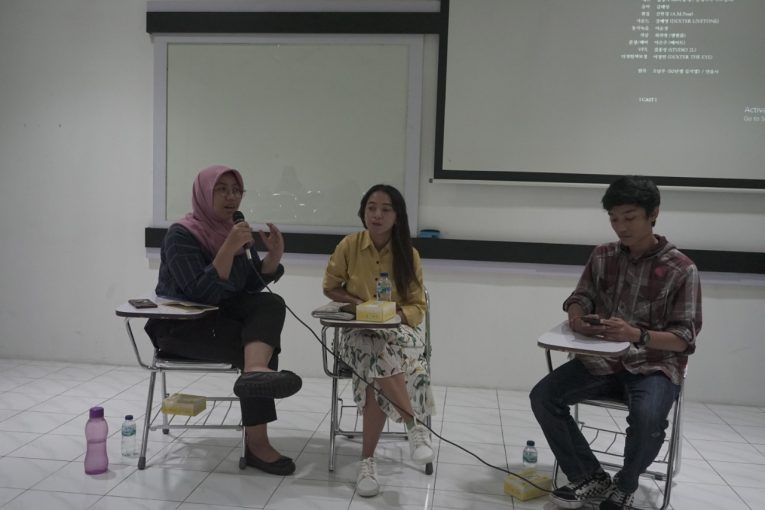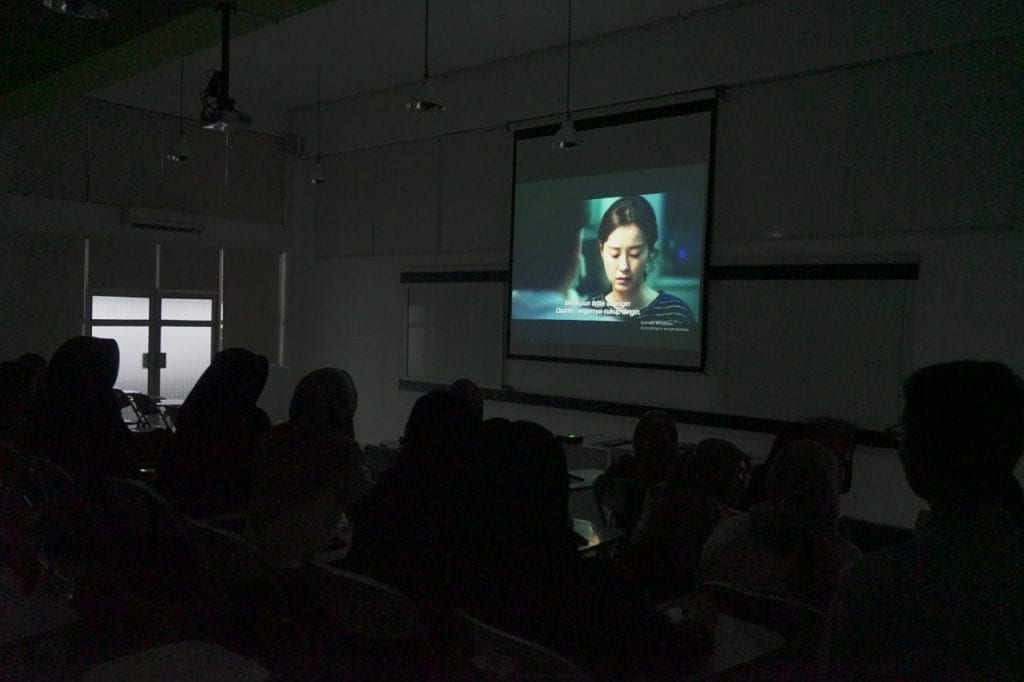
Yogyakarta, 5 March 2020—Organization of Humanity FISIPOL UGM held its first discussion and film screening Kim Ji-Young: Born 1982 with the topic, “Women’s Domestication in Modern Era, Is That Relevant?”. The film, Kim Ji-Young: Born 1982, represents how patriarchy is still ingrained in the marriage life. The main female character in this film portrays how she views her role as the housewife in the family which makes her suffers from severe depression. Not only that, this film also portrays the demands and obstacles of the working women. Overall, all of the problems is packed very neatly in this 1 hour and 58 minutes film, so it may encourage women to speak up regarding gender inequality in their lives.
Injustice seems like the root of feminism, a term which views social movement as a movement to fight for gender equality. Talking about feminism, our thoughts are not far from emancipation which leads to women’s domestication. Women’s domestication is an understanding that puts a woman into “housework-only” business. Discussions about women seem to have no end, and the limitation of women’s role has created gender inequality. Nonetheless, it is indisputable that women’s domestication does exist in our society, from a long time ago until these days.

The discussion and film screening which brought an issue about women seem to have caught the attention of the students. There are at least 30 people in this occasion and they were very enthusiastic to watch the film from the start until the end of the discussion. There were not only the students from UGM, but students from other universities also participated in this discussion which was held in the room 201 building BG on 4th March, 2020. This event lasted for about three hours with Mashita Fandia, S.I.P, M.A., as a lecturer of Communication Science and Nusaibah Edi, also known as Mbak Nusi, from Srikandi Party of UGM. The discussion which moderated by Rizky Dafa, a FISIPOL student of 2019 class, went well because of the questions from the participants which made the discussion more lively.
After watching the film, the two guests responded about the substances in the film. “For me this film is comprehensive enough in portraying how the marriage life of a man and a woman in the patriarchal society. If you, after watching this film, are still thinking that there is nothing wrong with our society, then you have to question your sensitivity. Because I think, even though contextually, there maybe a lot of cultural differences from Indonesia in this film, but these things still happen around us,” Mbak Mashita said.
“The film could represent patriarchal culture in a very real way. Talking about women’s domestication, I think that, sorry to say, it will take a long time to fight for. As we know, in Soeharto’s era there is a belief to put a woman as a complementary for her husband. And that era had been here for a long time. When it comes to this modern-day relevance, it is still relevant. Because until these days, women’s domestication is still a thing,” Mbak Nusi added.
“I’m happy but concerned as well at the same time, about the growth of social movement on social media, especially feminism movement. I’m happy because, finally, there are many discussions about feminism and gender equality. But I feel concerned too, because the approaches are less-appropriate sometimes,” Mbak Mashita said when she responded about the growth of feminism movement. “Actually in this patriarchal system that has already been accepted by our society, it is very common for the married women to be housewives, do the childbirth, and taking care of the children. If they have not married yet, they would be called perawan tua or a spinster, their family and neighbors would be gossiping about them, too. This showed us how patriarchy has indoctrinated not only men, but also women. Talking about the disadvantages of patriarchy, it is not only felt by women, but also men. Patriarchy demands women to take care of their household, and men to make lots of money,” Mbak Mashita added.
In the end of this event, Mbak Mashita gave an advice for the participants to have a modern young soul. “You are free to do whatever you want. Do not lose hope because of the condition of your family, your society. Be confident of what you choose, strengthen your sensitivity for humanizing another human,” Mbak Mashita advised. “We should be sensitive with our society, but we should improve our literacy and education, too. Because the current issues should we shaped by education,” Mbak Nusi added.
